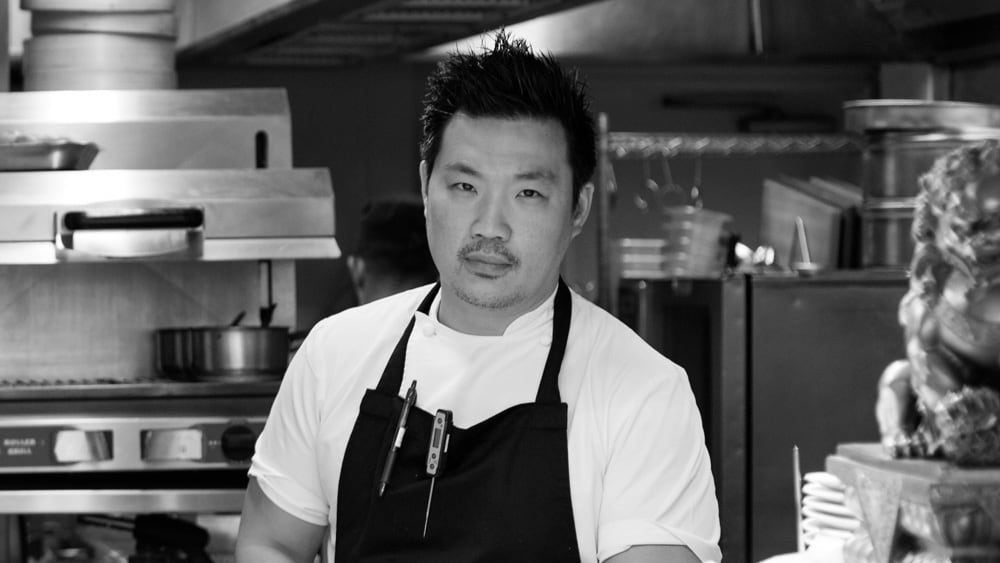When Andrew Wong took over his parents’ modest Cantonese restaurant, it was out of duty rather than design. The plan had been a career in law, but the sudden death of his father pulled him back into the family business. Obligation soon turned into passion: after training at the nearby Westminster Kingsway catering college and travelling extensively through China, Wong set about transforming Kym’s, the traditional Anglo-Cantonese his parents had run since the early 1980s, into something far more ambitious.
In 2011 he reopened it as A Wong, named after his parents Albert and Annie rather than himself (as most assume). From the start, the restaurant set out to challenge British preconceptions of Chinese food, showcasing its refinement, regional diversity and technical brilliance. Simultaneously scholarly and progressive, its menus celebrated everything from Cantonese dim sum to fiery Sichuanese stir-fries and the then virtually unknown specialities of Yunnan and Xinjiang. Wong’s meticulous approach and refusal to compromise quickly won over diners and critics alike.
Recognition followed: a Michelin star in 2017, and a historic second star in 2021, making A Wong the first Chinese restaurant in the West to hold two. Four decades after his parents first opened the doors, Wong reflects on the journey so far.
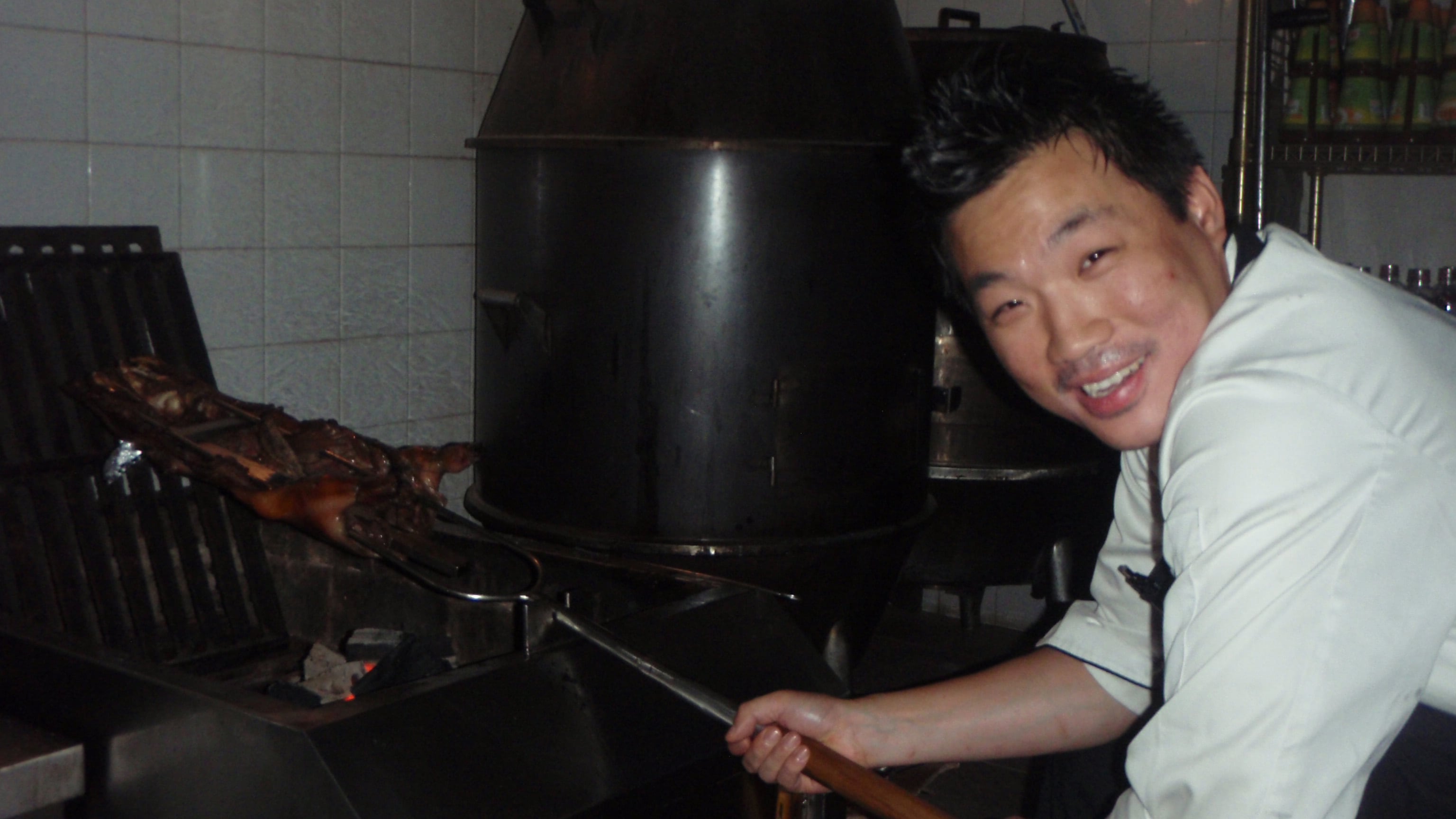
You were a toddler when Kym’s opened. What is your earliest memory of it?
Probably my sister and I being rushed there in the evenings in our pyjamas because my mum needed to help out. She would lock us in the office and take us home a few hours later when we were semi-asleep. When we were a bit older, we would sit at the bar, chat to the waiters, and help fold napkins and dry chopsticks and put them in the sleeves. We’d have staff food around the time Neighbours was on – about 5.30pm, I think – and then go home after that. My memories of those days are fond but also associated with being bored. My sister and I would do anything to pass the time. We used to sit on the photocopying machine in the office and print out pictures of our bums.
What sort of jobs were you doing in the restaurant when you were growing up?
If we’re talking about full-blown washing plates, I was about eight or nine – which is still quite young. I’d come in, my sister would bunk off and pretend she was sick, and my dad would give me enough money to buy two batteries for my Walkman. I’d plug in, put the music on and wash plates for six or seven hours straight. There was no dishwasher at the time, it was all manual. I always wanted to work front of house, because it seemed less dirty and wet, but I wasn’t allowed to be out front in case social services came along. My earliest memory of working front-of-house was when I first met my wife Natalie. It was Chinese New Year, and she was helping a family member who worked with my dad. We got told to dress up in pig costumes – it was the Year of the Pig – and go around every table singing a New Year song. We must have been about 10 years old.
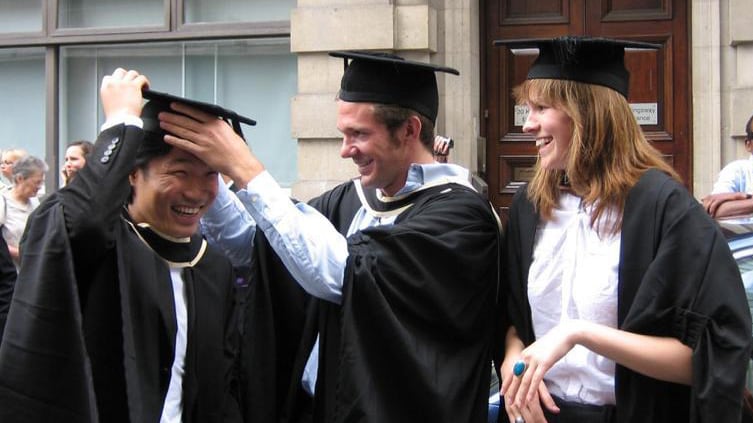
But it wasn’t you or your family’s plan for restaurants to be your career…
My parents never wanted me to be in hospitality. My dad got into restaurants because there wasn’t anything else he knew how to do. He used Kym’s to pay for my sister’s and my education. That’s the classic migrant story: not wanting your kids to do the same job, but something more aspirational. Even now, I don’t want my own kids to go into hospitality. I don’t think many parents want their children to do the same thing as they do.
How did it feel to return to the restaurant when your dad died?
That’s not quite how it happened. Shortly before he died, I got thrown out of university, and the punishment was that I had to spend the rest of the year working at the restaurant. At that point Natalie was also working at the restaurant. We’d go out every night, and during the day I’d sleep downstairs while she did the work. Around the time I went back to university, my father died. So, when I returned again, it wasn’t a massive shock. Natalie and I already knew the routine – cleaning, setting up the bar, talking to the chefs, using the POS. We didn’t know how to run a restaurant, but we understood the rhythm. My mum is a great businesswoman and fantastic at cutting costs, but my dad was the entrepreneurial one. I was still at university at that point, but halfway through the year I thought that maybe I should learn to cook. So, I enrolled at Westminster Kingsway.
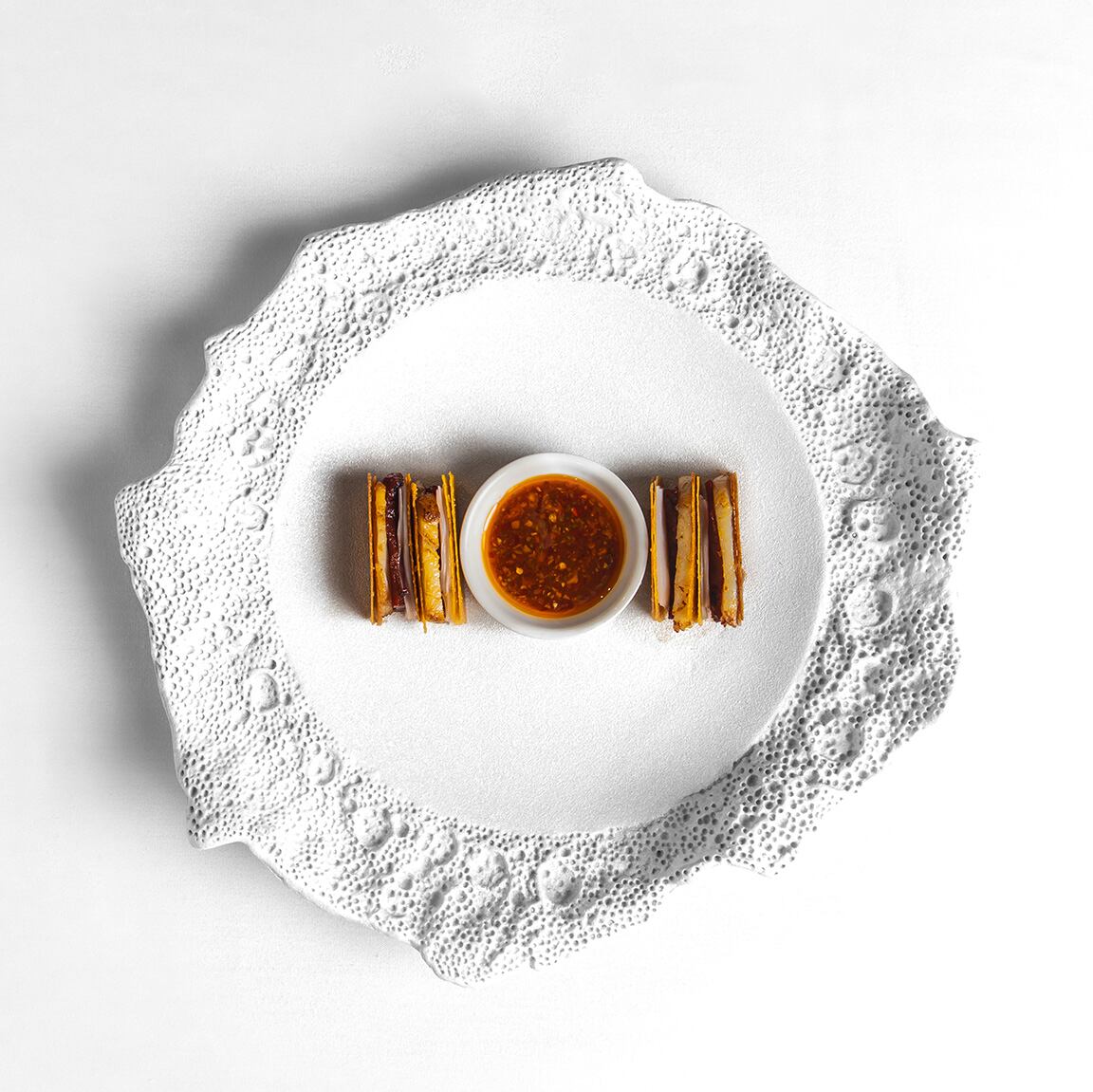
It was around this time you started to really explore Chinese cuisine…
Yes. Around that time, I bumped into someone who was a mutual friend of Fuchsia Dunlop (the hugely influential food writer and restaurant consultant) who was working at the Sichuan Institute of Culinary Arts. I went out there to learn about Sichuanese cooking and also the foundations of several other regional cuisines. My Sichuanese Chinese was poor, so in lectures I guessed what was being said, but I was good at visually comprehending, watching, and piecing things together. After that, I worked in a restaurant in Tsingtao, then went to Beijing, then Hong Kong. By that point Natalie said: ‘if you don’t come back, I’m going to kill you’. When I came back to London, we started to think about relaunching the restaurant. It wasn’t about elevating it, more moving it in a different direction. At that time nobody was trying anything else. Fuchsia was running Barshu, there were a few hot pot restaurants, but otherwise nobody was exploring. I didn’t want to copy Hakkasan – though of course I’d have loved a restaurant with 500 covers and 99 chefs - I just wanted to cook the food I wanted and create a restaurant that didn’t necessarily look Chinese, but where the food, atmosphere and service made it Chinese. At that point it was more like “postcards from my travels” – dishes I loved and thought our guests would too.
How did people respond to A Wong?
When people talk about reactions to change, it assumes the new product is as good as the old. But when we opened in October 2011, it was so bad that comparisons weren’t even with my dad’s restaurant – it was just: this is really bad. I remember rewriting a 40-item menu every 48 hours for weeks. Young chefs always think they can open a restaurant until they actually open one. The first three months were tough. Guests still came through the door thanks to my parents’ goodwill, but the food wasn’t delivering, and the service was all over the place, it was like two kids playing restaurant. By Christmas, we were starting to feel like a real restaurant. In January, Fay Maschler walked in. We didn’t know who she was. A waiter dropped a whole glass of water on her. She came back again, and again with her husband, then with her son. We didn’t get a great rating, but her review was very encouraging saying we were trying something new. That created curiosity from other journalists. Lots of other critics came and the reviews weren’t always great; AA Gill gave us a terrible one. But I didn’t care, I was just happy the restaurant was in a magazine. Good or bad, reviews bring people in.
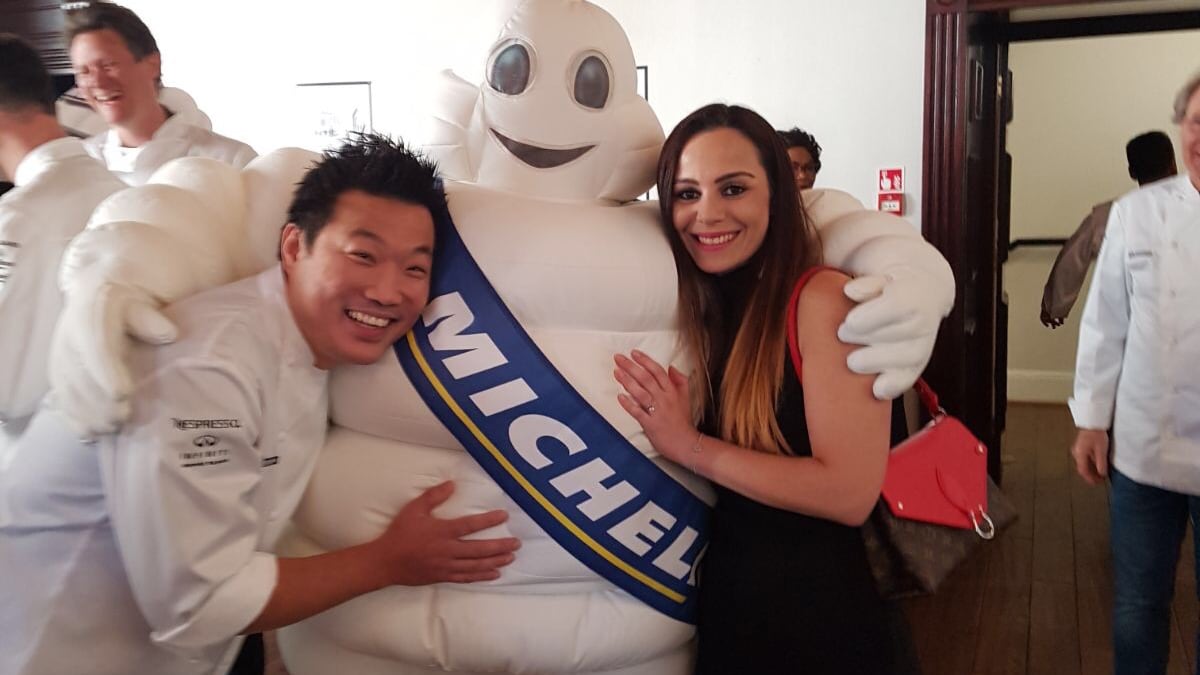
How did it feel to get a Michelin star?
Nowadays you see a lot of restaurants open and then win stars quickly. It’s an incredible achievement because they’re basically hitting that standard straight away. For us, it took three years. When we first opened, we were way below standard, and even when we won our first star we were only just getting there. Winning two Michelin stars was odd, we never expected it. It was lockdown, we thought Michelin wouldn’t make any drastic moves let alone give a Chinese restaurant two stars. Sometimes it feels like as a restaurant we’ve worked incredibly hard, but we’ve also been very lucky. I remember during the first lockdown we happened to film some MasterChef, which boosted reservations when we reopened. Then during the second lockdown we won two stars, which gave us another six to 12 months of momentum coming out of it. Every time there could have been a slump in business, something happened to give us that push through tough times.
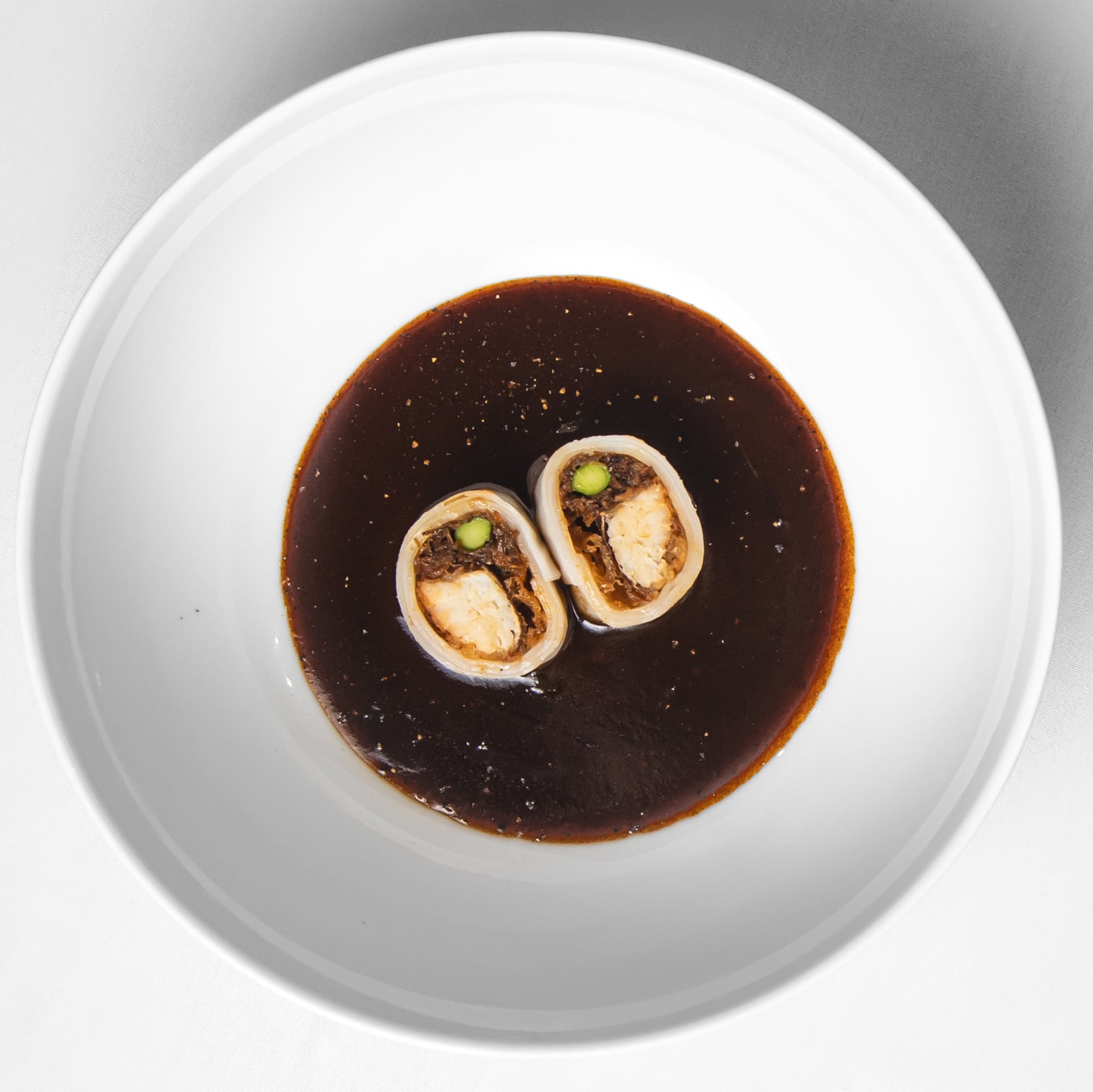
What would your dad say if he was still around to see what you’ve achieved with the restaurant?
I always say my dad would be proud of what we’ve achieved, but he would never have let it take this long to get here. If I look back at the first three to six months, I really admire my mum for letting me carry on. Every day she would come to me and say: “You wanted to do it, sort it out.” She never told me how; she just made me take responsibility. My dad would have been the opposite. He’d have been saying: “Do this, do that, I’ll bring someone in.” He would have tried to fix it for me. Without my mum’s attitude — tough love, basically — we’d never have made it.
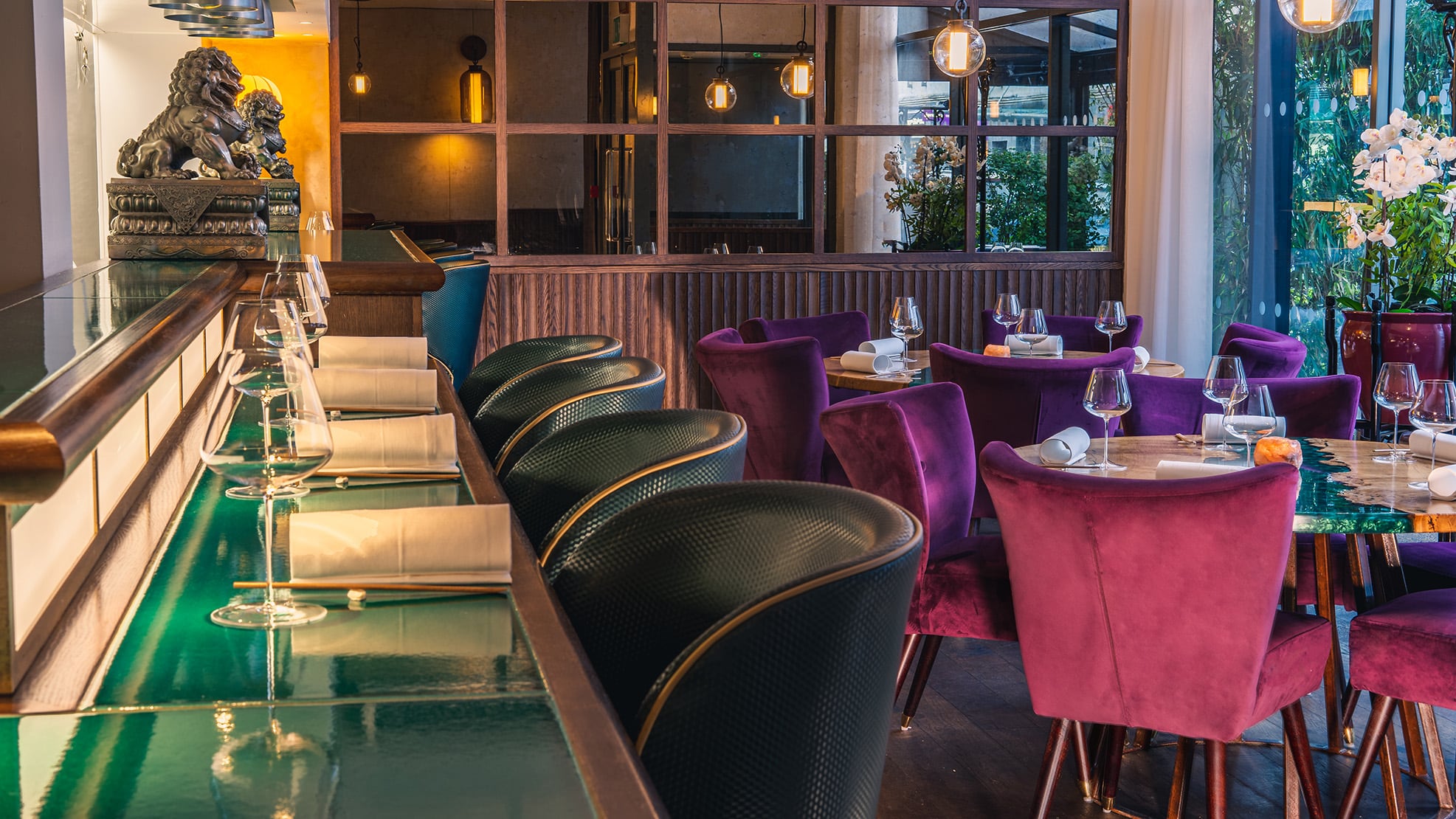
Your mum loves to cut costs. Being involved in a Michelin-starred restaurant must be a nightmare for her
My mum is the ultimate cost-cutter. At one point she insisted we made our own order pads by stapling old pieces of paper together. Now she’s moved back to Hong Kong because she can’t bear to see how we run the business. The minute she walks in she asks why there are so many staff and why every table isn’t full. I don’t even bother telling her about ingredient costs, because that would spiral her into a meltdown. Back in the day we used Ikea plastic cups because they didn’t break, now we have glassware that costs £40-£50 apiece and we break 20 or 30 a month. She’d have a heart attack if she saw that. But she makes me question myself every time I want to spend money on the restaurant, which isn’t a bad thing.
Over the past 40 years, London’s Chinese food scene has changed a lot, especially in the last 10. What’s behind the rise of less Anglicised restaurants, and the move away from Cantonese dominance?
The diversification of regional Chinese food in London reflects a global reality. In the 70s most restaurants were Cantonese, because they were opened by Hong Kong migrants. Today those families have built their lives, sent their kids to private school and top universities and those kids are now bankers, lawyers and doctors, not chefs so there aren’t many Cantonese chefs coming through anymore. Instead, we’re seeing an influx of chefs from other regions, especially Sichuan and western China, opening restaurants that reflect their heritage. On top of that, you’ve got this younger generation of often highly qualified professionals who’ve looked at their careers and thought: “You know what, I want to reconnect with my culture through hospitality.” A lot of the new Chinese restaurant owners in London are people who are massively overqualified, but they’ve got the curiosity and passion to reconnect. I’m no different. I opened a restaurant to reconnect with my culture.
You have a new YouTube series…
The YouTube series came out of curiosity. I wanted to see if you really can build interest and a following just by cooking homely recipes at home. What we do in the restaurant now is so far removed from what people cook at home and I wanted to show there’s a relationship between the two. The dishes at the restaurant don’t appear out of thin air, they evolve from somewhere. We’ve been cooking recipes I haven’t made for years, some since my parents’ restaurant. Once you engage in that world, it’s fun to wake up and read all the comments because everyone’s got an opinion. For me Uncle Ken (Ken Hom, who is not really Wong’s uncle) made the best Chinese cookery shows. But it’s 2025 now - the climate, the accessibility, the culture has shifted. This series is about reflecting that.


